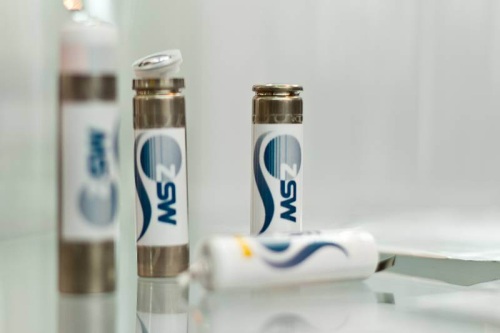Development allows battery to be charged once a day, every day, for 27 years
Researchers at Germany’s Center for Solar Energy and Hydrogen Research Baden-Württemberg (ZSW) claim to have made improvements to lithium-ion batteries that allow them to be recharged up to 10,000 times while still retaining 85% of charging capacity.
German researchers have purportedly developed a battery that can last 27 years. (Image via: cleantechnica.com)
In theory, if a battery like this were used in, say, an electric vehicle, the owner of the car would be able to recharge the battery once a day, every day, for 27.4 years.
“After 10,000 complete charging and discharging cycles with a complete charge and discharge cycle per hour (2 C), our lithium batteries still have more than 85% of the initial capacity,” reports Dr. Margret Wohlfahrt-Mehrens, Head of the Accumulator Material Research Department in Ulm. “That also provides excellent prospects for a long calendar life.”
While this is a major breakthrough, it’s not much of a surprise. Last year, the same group published a paper in the Journal of Power Sources that described the progress they made researching electrode manufacturing process improvements for the purpose of improving the longevity of lithium-ion batteries.
Specifically, they noted electrode thickness changes — that is, how much the electrodes compact during use and the type of conducting agent used in their construction when engineered in this new way — could help batteries better withstand the physical demands of constantly recharging.
The prototype batteries were created in the 18650 format and feature a density approximately four times that of current batteries (1,100 watts per kilogram). Along with developing the test batteries, ZSW also designed the new cell type as well as developed a manufacturing process to accommodate the new battery.
While the technology is specially designed for storing power created by wind / solar farms and in cars, ZSW did note that they do not expect to deliver the new battery to manufacturers for use in actual cars or alternative storage devices just yet. They plan on holding on to it a bit longer to ensure that they not only hold up to the claims being made but they’re safe as well.
Story via: zsw-bw.de